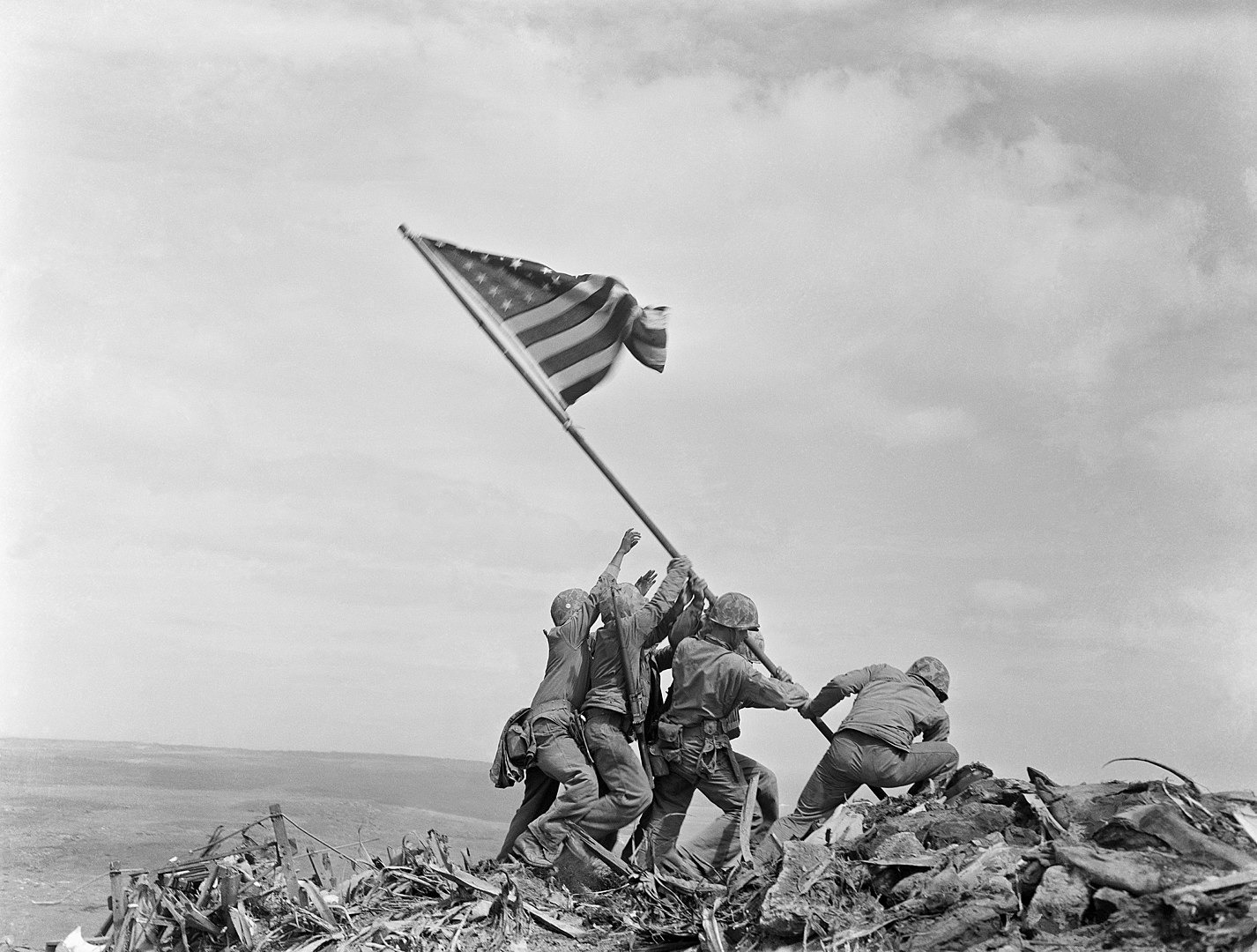As the 80th anniversary of 1945 approaches, the Pacific front of the Second World War must be commemorated too

Year: 1943. Somewhere in occupied Europe a brave band of brothers are trying to sabotage Nazi infrastructure. Well, actually, it’s 1975 in a south London park. My teenage brother and his friends are making a war film on their little cine-camera. My sister and I have been allowed to tag along and watch. The resulting footage is a strange mix of live action shoot-outs and deaths dripping with fake blood, alongside cutaways of plastic tanks and toy soldiers melting slowly in flames. The family photo album attests that the Ahmed summer holiday that year was, thanks to big brother’s obsession, a road trip around the Second World War battle sites of Belgium, the Netherlands and Germany.
It is this generation of boys in particular, born in the 50s and 60s, for whom the “We Have Ways of Making You Talk” podcast was made – boys raised on a diet of Second World War films and comic books, taught by men who had fought themselves. The podcast is hosted by historian James Holland and comedian Al Murray. It was so successful that it spawned a weekend festival in 2019, where hundreds gather for talks, costumed re-enactments and screenings. The latest took place in July in Buckinghamshire.
This year holds particular weight, as it marks the beginning of commemorations marking 80 years since the end of the war, with the very last survivors of those battles. In Britain, these centred around D-Day in June. When the then prime minister Rishi Sunak chose to leave the remembrance ceremony early, it was particularly shocking because it suggested a fundamental failure of respect and understanding for the terrible human cost of the Normandy landings, which marked the start of the defeat of Nazi Germany. It’s a day that has inspired a string of classic films, including 1962’s The Longest Day and Steven Spielberg’s 1998 epic Saving Private Ryan. Such films inspire much discussion among the history enthusiasts at “We Have Ways of Making You Talk”.
But the war in the Pacific took much longer to turn. And as the cycle of the year progresses through the anniversaries of key battles leading up to the Japanese surrender in August 1945, it is worth reflecting on why that front has been the relatively forgotten war.
Perhaps from a British perspective it’s the scale of imperial humiliation. The fall of Singapore in February 1942 was the largest surrender of British forces in history – even though they far outnumbered the invading Japanese troops.
As a result, it’s been best remembered in works of fiction about the civilians swept into camps. A Town Like Alice by Nevil Shute and J. G. Ballard’s Empire of the Sun were both turned into successful films, while the 1990 Australian film Blood Oath tackled the great betrayal after the Japanese surrender, when the US exempted many Japanese military commanders from war crimes trials.
And while the European story is replete with much celebrated heroism – stories of bouncing bombs, Enigma code crackers and SOE operatives risking it all to aid the resistance – in the east, bravery was tied to battle on a more industrial scale. The “Pacific theatre” encompassed a massive terrain, and underlying the conflict was a sense of racial hatred on both sides. Spielberg and Tom Hanks’ 2010 series The Pacific recounted human rights abuses by US troops, while the Japanese military, trained to think of death before the dishonour of surrender, saw Allied prisoners of war as subhuman.
The Tasmanian author Richard Flanagan won the Booker Prize in 2014 for his novel The Narrow Road to the Deep North, inspired by the harrowing experiences of his father, who survived Japanese forced labour camps. For Australia and New Zealand’s surviving POWs, who bore the brunt of Japanese violence in captivity, there was the additional moral complexity of knowing that it was the dropping of two atomic bombs, killing more than 100,000 civilians, which saved their lives. In his latest memoir, Question 7, Flanagan starts with the knowledge that his father would never have survived if not for Hiroshima.
Crucially, in Japan (in stark contrast to Germany), war crimes remain unacknowledged in history books or school curricula. The last Korean survivors kept in Japanese wartime rape camps as “comfort women” have continued to fight for justice. But as the 80th anniversary of 1945 approaches, I wonder when the lifting of the veil of silence will come. It will be another tragedy if the war in the Pacific is properly remembered only after the survivors and veterans are gone.
This article is from New Humanist’s autumn 2024 issue. Subscribe now.

